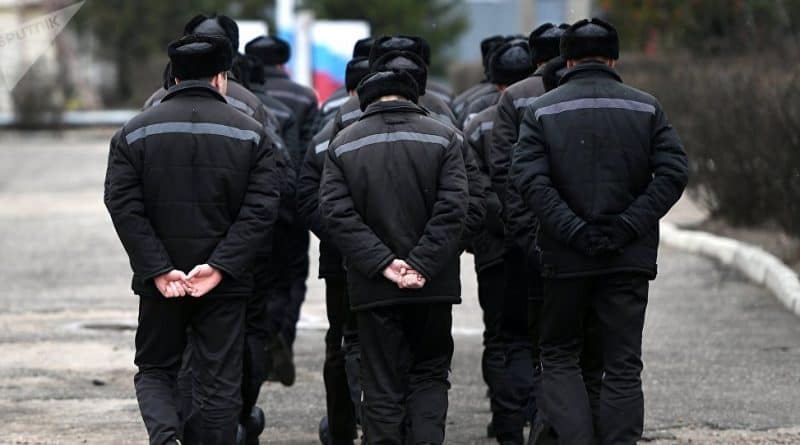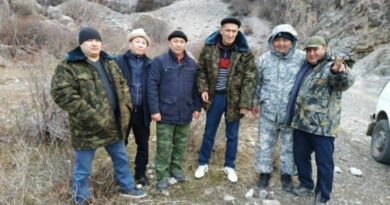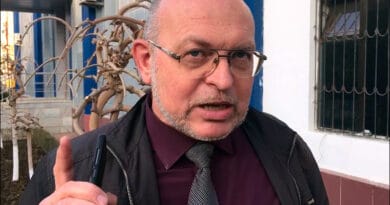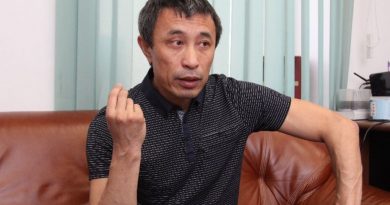Kyrgyzstan: no prisoner with disabilities has been released under amnesty
An amnesty was announced in Kyrgyzstan in May. It was supposed to unload the penitentiary system of the republic, including by releasing people with disabilities from places of imprisonment. However, not a single disabled person has been released under the amnesty, which expires in November.
Human rights activist Indira Sautova told ACCA that, according to the latest data from the State Service for the Execution of Punishment of the Kyrgyz Republic, only 140 people have been included in the act of amnesty under Article 1 of the Law, that is, under full release.
“About a hundred of them have outstanding pecuniary claims, which means they will not be able to be released. As far as I know, as of today, 44 people have been released under the amnesty and there is none of the category of PWDs among them,” she says.
According to her, the reason for this state of affairs is that, formally, there are no people with disabilities in the prisons of the Kyrgyz Republic.
“I started to study this issue and it turned out that in the penitentiary system a person can have the status of a disabled person if he/she does not have a leg or is blind. But he/she cannot be included in the amnesty, because there is no medical and social examination in closed institutions,” Sautova notes.
According to her, the medical and social examination is not carried out, because there is the government decree No. 68 (2012) prohibiting such examination in prisons. It turns out that PWDs in closed institutions at the legal level are deprived of documenting their status.
“Human rights activists appealed to the State Penitentiary Service with a request to comment on this situation. The department has informed that the decision is being reviewed. But, according to my information, the revision process dragged on for three years,” the human rights activist expresses her indignation.
At the same time, Indira Sautova managed to find out that, in fact, the State Penitentiary Service could conduct an examination of persons with disabilities in prisons, since the department has a legal basis and opportunities for this.
“The State Service for the Execution of Punishment has medical and preventive institutions, as well as a specialized medical labor commission and a medical expert commission. These commissions are subdivisions of the administration of the organization of medical and sanitary provision of the State Penitentiary Service. Their work is regulated in accordance with the “Regulations on the specialized medical and medical-labor expert commission”. The composition of specialized medical and medical labor commissions was approved by order of the State Penitentiary Service No. 104 of March 2, 2012. The same regulation describes the algorithm for conducting a medical examination of convicts and determining disability,” the lawyer states.
She points out that in chapter 4, paragraph 10 of this document, it is noted that “the degree of disability, that was specified for the convicted by the medical labor commission of the social security authorities before his/her conviction, is valid for the entire period established by the commission. At the end of this period, the convicted person must be reexamined in accordance with regulations”. In the same provision, there is a requirement that after the convicted person is recognized as a disabled person, a corresponding note must appear in his/her medical documentation.
“Having studied the document, I came to the conclusion that the medical service of the State Penitentiary Service simply does not comply with this provision. In addition, it is unclear for what purpose the department disseminates information that the State Penitentiary Service together with the Ministry of Labor and Social Development, the Ministry of Health is working on a draft resolution of the government of the Kyrgyz Republic “On medical and social examination”, although the current regulation quite allows the medical department of the State Penitentiary Service to conduct a commission without other state bodies,” Sautova wonders.
“According to unofficial data, about 4,000 persons with disabilities are serving sentences in places of detention in Kyrgyzstan,” the human rights activist says. “With a rough estimate, this is 40 percent of the total number of the republic’s prison population.”
“Two of my clients are among these prisoners. Artur Bekker (sentenced to 13 years in prison) and Osmon Aytiev (formerly an inmate of an orphanage, sentenced to 10 years in prison) are serving their sentences in correctional institution No. 1 in the village of Moldovanovka. Both of them are actually persons with disabilities, but they are not officially recognized as disabled due to the fact that medical and social examination of prisoners has been suspended in the penal system since 2011, and today they are deprived of the legal right to document their status and receipt of statutory social benefits and guarantees. I am trying to ensure that the constitutional rights of these people will be restored,” says the human rights activist.
She emphasizes that PWDs in prisons of Kyrgyzstan are in a very vulnerable position. They are unable to file a joint action against the state due to the latter’s failure to comply with constitutional guarantees.
“They are not allowed to write collective statements. In addition, they are afraid to do this. If a person in prison complains to higher authorities, various sanctions and punishments may be applied to him/her,” says Indira Sautova.
She emphasizes that there are other ways to unload the penitentiary system by freeing people with health problems.
“There is the list approved by the government, the list of diseases, on the basis of which the State Penitentiary Service makes a decision that this or that person cannot be kept in prison for health reasons. But this list, for inexplicable reasons, works selectively. In our country, there were only two precedents when the State Penitentiary Service independently applied for the release of people included in this list. These are the cases of Aziz Batukaev (thief in law, for whose release former President Almazbek Atambaev and a number of officials were convicted – ed.) and Marat Sutalinov (former head of the State Committee for National Security; he was released with diagnosis of cancer (stage 4) under pressure from the human rights community and the public – ed.). By the way, after the release of Batukaev, in lobbies, the representatives of state bodies say that they are afraid to release people from this category of prisoners,” Sautova sums up.




